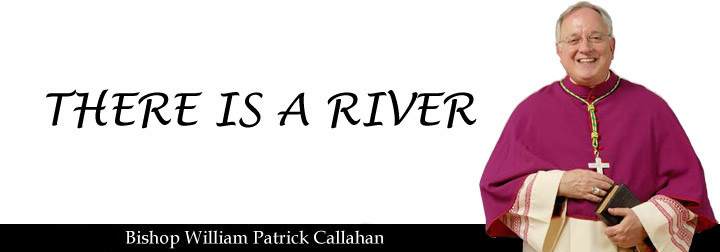In the seventh chapter of the Gospel of Luke, Jesus challenges the crowds regarding their curiosity about John the Baptist when he speaks about John, “What did you go into the wilderness to see? A reed shaken by the wind? But what did you go out to see? A man dressed in soft clothing? Those who are splendidly clothed and live in luxury are found in royal palaces! But what did you go out to see? A prophet? Yes, I say to you, and one who is more than a prophet.” (Lk. 7: 25ff)
Jesus made it very clear that John the Baptist was not some sideshow barker who was out to trade on the latest Messiah craze. He, the Baptist, did not come to announce a new way for people to abandon the faith of their elders, but rather he showed the way for people to realize the strength of their faith and the traditions that they are promised throughout the Scriptures. Most people were surprised by the Baptist and by his message and by his means of delivering it. It was discomforting. It was preparing the way for Jesus.
Well, Jesus arrived. He spoke clearly for Himself, certainly amplifying the Baptist’s message, with perhaps a bit less stridence, but not without an even greater force and emphasis. With Jesus there is a certain level of personal encounter that engages His followers and calls for that same change of heart and commitment to faith, but now with a personal commitment to Him. “Many are called, few are chosen.” (Mt. 22:14ff) “Let those who have ears to listen, hear.” (Mt. 11:15ff)
In these days it becomes popular, even among the followers of Jesus, to think that somehow His message takes on a nuance that reflects the age in which it is preached. If this is so, then it seems that the Eternal Word did not speak, once and for all, a Truth that is for all generations until the end of the world. If truth is changeable and subject to times, places, and various human foibles and trends, then why do we need Jesus in the first place? Did He just offer the primer by which a new philosophy of life would be launched upon humanity? Are we, and each generation after us, the ultimate designers of His message to suit our needs and times? It seems that “the time will come when they will not endure sound doctrine; but wanting to have their ears tickled, they will accumulate for themselves teachers in accordance with their own desires and will turn away their ears from the truth and will turn aside to myths.” (2Tim. 4:3ff)
There is currently a great curiosity concerning Pope Francis. He does have a way of saying things that are often perceived in a provocative and a less nuanced manner than any pope many of us have ever known in our personal histories. A voracious media, hungry for what it sees as ultimate change in the Catholic Church, has magnified the Pope in such a way that would “turn the head” of a lesser man. This Pope is the Vicar of Christ and the Successor of Peter, and he knows it. It was to Peter that Jesus, Himself, gave the keys of the kingdom—the power to bind and loose, and this Pope knows that as well.
Sometimes it seems that there are those among us who expect to see a reed shaken by the wind or some other merely human manifestation of papal power that is going to advance the cause of the undoing or the radical changing of the Church. I doubt that very much. I believe we may be witnessing, in Pope Francis, a new method of delivering the same Good News that the Church, in Her Wisdom and under the guidance of the Holy Spirit, has delivered since She was born from the open side of Christ on the cross: “there is one body and one Spirit, just as also you were called in one hope of your calling; one Lord, one faith, one baptism, one God and Father of all is over all and through all and in all.” (Eph. 4:5 ff)
A resolution for the future: celebrating the faith at Sunday Mass.
